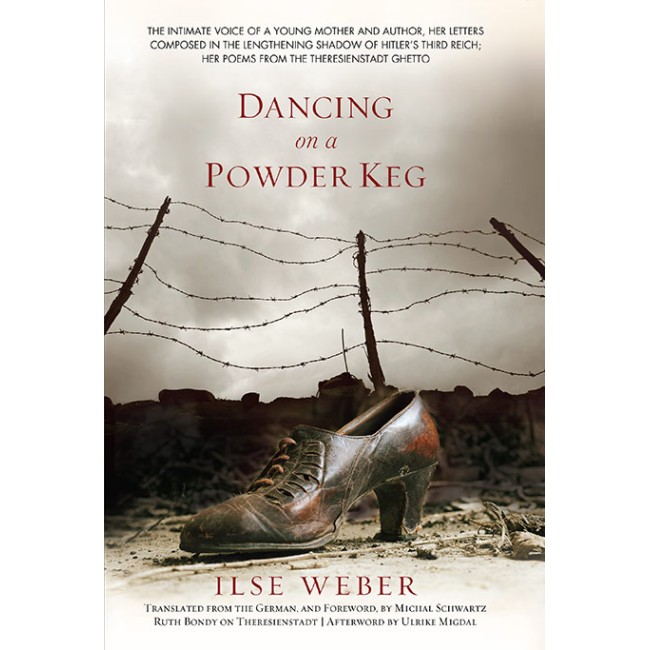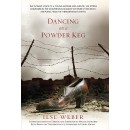Dancing on a Powder Keg
The Intimate Voice of a Young Mother and Author, Her Letters
Composed in the Shadow of Hitler’s Third Reich;
Her Poems from the Theresienstadt Ghetto
By Ilse Weber
Translated and Foreword by Michal Schwartz
Ruth Bondy on Theresienstadt
Afterword by Ulrike Migdal
”I have read many accounts, but this account by someone who did not survive… is exceptional.”
- Prof. Yehuda Bauer, Yad Vashem
”This sobering, respectful collection brings a haunting legacy out of the viciousness of the war.”
- Karen Rigby, Foreword
“Dancing on a Powder Keg addresses the coming tide of the Holocaust, the heartache of saving a child by sending him away, and the reality and horror of Theresienstadt. This is a haunting and unnerving narrative of one woman’s world being destroyed.”
- Renita Last, Jewish Book Council
When asked, "Who is a heroine of the Holocaust?" most people immediately respond: Anne Frank. With the publication of her diary after war she became THE female icon of the Holocaust, though she was only a child. There were women who were also heroines, and their courageous stories are only now coming to light. "The fate of Jewish women and the specific problems they faced is a topic that has barely been touched upon," says Professor Yehuda Bauer of Yad Vashem and an international authority on the Holocaust. “I have read many accounts, but this one (Dancing on a Powder Keg) by someone who did not survive, and whose story has been reconstructed, is exceptional." he says.
Ilse Weber, from Czechoslovakia, deserves recognition. Dancing on a Powder Keg which contains 100 letters and 63 poems written by Ilse between 1933 and 1944 will endear her to the hearts of American readers. This is the first time Ilse's letters, songs, and poems, originally written in German, have been published in English. The book contains photographs, drawings, and two background essays by leading experts.
Ilse was a wife and mother, a radio personality, a musician, an author and a published poet. Dancing on a Powder Keg reveals her multi-faceted life living in Prague before the war. It depicts how her family, career and emotions unraveled as the Nazis gained power.
Ilse, her husband Willy, and her younger son Tommy were imprisoned in the Theresienstadt ghetto from 1942-1944. Ilse worked in the children's infirmary and sang to the young patients. She risked her life writing poetry about the dire circumstances. Language offered a refuge and consolation to Ilse and her fellow inmates benefited from her writing. Ilse's poems were recited and memorized by thousands of people in the ghetto, and survivors say the poems kept their spirits alive.
In 1944, Ilse volunteered to accompany the sick ghetto children on their transport to Auschwitz. Upon arrival, she sang her beautiful lullaby, Wiegala, to calm the children as they were led to the gas chambers. Both Ilse and her son Tommy perished along with them. Wiegela has been recorded and performed by singers across Europe. It is currently featured in the Tony nominated Broadway show Indecent. Ilse's poignant poem Letter to My Son is featured on a YouTube video, with Ilse's grandson in the audience. (Ilse's family and the miraculous discovery of the letters provides another layer to her story narrated in Ulrike Migdal's afterword).



